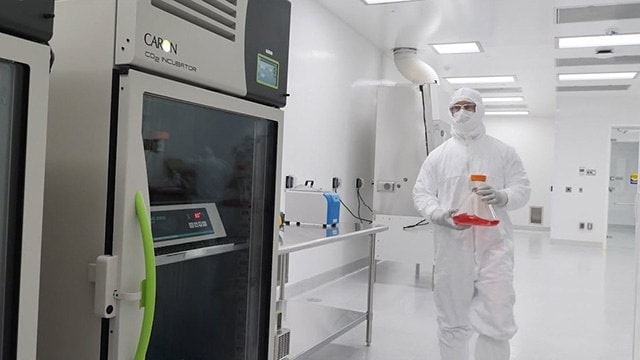Viral Vector Contract Development and Manufacturing

Manufacturing complexity continues to be a challenge within the gene therapy industry. Building internal capacity for viral vector manufacturing and supporting the facility with specialized experts can be prohibitively expensive and time-consuming. Consequently, most therapeutic developers choose to partner with contract development and manufacturing organizations (CDMOs) offering proven capabilities to take promising gene therapies from process development through to clinical and commercial manufacturing.
Reasons to outsource include:
|
|
Trust and experience are critical in the selection of a contract manufacturer, which may be called upon to provide either discrete operations or end-to-end services spanning the entire viral and gene therapy lifecycle. The range of services provided by a world-class CDMO can encompass:
- Cell and viral banking
- Process development
- Technical transfer
- Clinical and commercial manufacturing
- Sterile fill finish
- Viral vector testing
- Secure biostorage
- Release to clinic
- Administration to patients
CDMOs capable of handling these diverse responsibilities must possess extensive in-house experience producing a broad range of virus types and processes, as well as state-of-the-art facilities that are credentialed for current good manufacturing practice (cGMP) and process performance qualification (PPQ).
With safety and regulatory compliance critical to success, biologics manufacturing sites should be able to document completion of pre-licensure inspections by organizations such as the U.S. Food & Drug Administration (FDA) and European Medicines Agency (EMA). Such a one-stop resource gives gene therapy developers the means to integrate compliance, safety, and process development on a global scale if necessary, eliminating time and risk mitigation concerns. A notable example is the BioReliance® manufacturing facility in Carlsbad, California, the first CDMO in the viral vector manufacturing industry to complete pre-licensure inspections for both the FDA and EMA. This experience provides the basis for understanding and communicating critical factors in commercialization of efficacious gene therapy treatments.
Workflow


Viral Vector Upstream Processing
Making the right upstream process decisions not only impacts viral vector titer, but downstream processes, timelines, and regulatory acceptance

Viral Vector Downstream Processing
Efficient virus purification processes can improve yield, decrease time to patient, and lower manufacturing costs

Viral Vector Formulation and Final Fill
Formulating a commercially viable gene therapy demands a high level of application and regulatory expertise

Viral Vector Characterization and Biosafety Testing
Critical biosafety testing and characterization of viral vector products can help to fully analyze key quality attributes: identity, potency, safety, and stability
Related Products
A transfection-based solution to lentivirus production challenges using a suspension cell line, chemically defined medium, and a process with proven performance at scale.
To continue reading please sign in or create an account.
Don't Have An Account?

